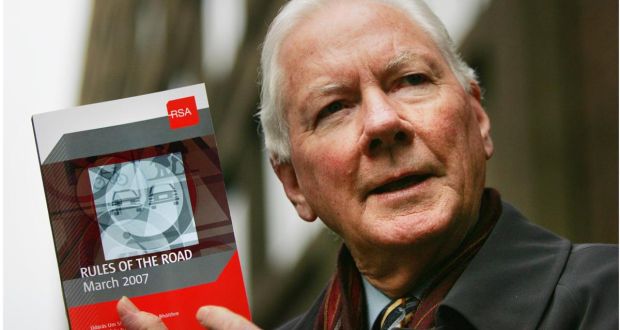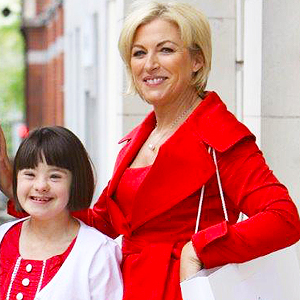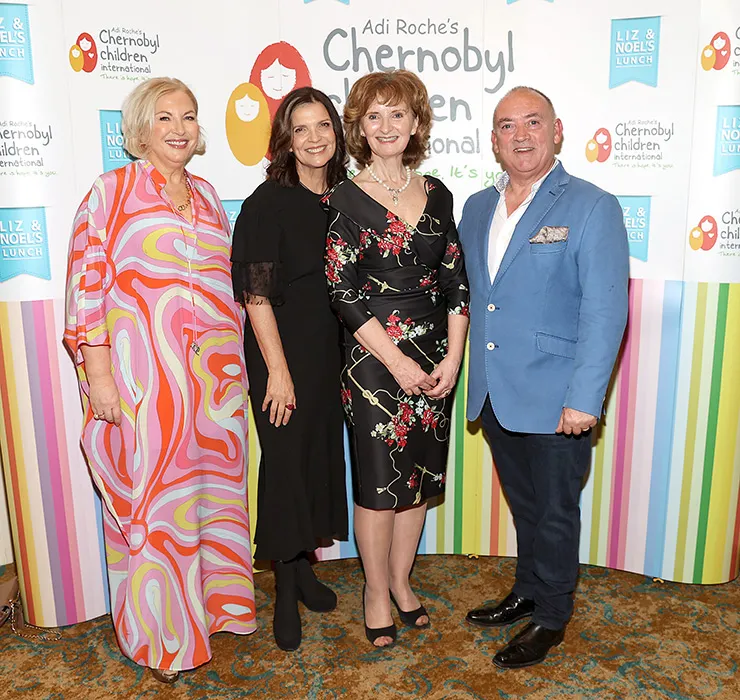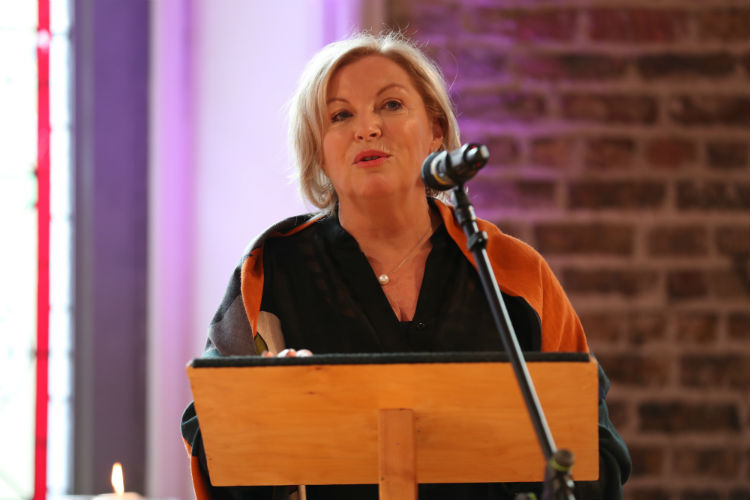A tribute to Gay Byrne’s Road Safety Legacy by Liz O’Donnell
Gay Byrne – His road safety legacy is more than a footnote in his illustrious career
This has been a week of sadness and loss as the nation learned of the passing of renowned broadcaster Gay Byrne. The airwaves filled with tributes to him as a significant transformative person in Irish society over many decades. As was remarked by Bob Collins in his funeral mass in the Pro Cathedral, Gay’s talent was immediately evident right from the very beginning of the Late Late show in 1962. That show served as a forum for a” national conversation with ourselves.” As a masterful interviewer, he led the way in interrogating issues which for too long had been taboo in Ireland.
From regressive social policies, domestic violence, homosexuality, the power of the Catholic Church and marriage breakdown, to women’s reproductive freedom. All these issues got an airing in conversations chaired and stimulated by Gay Byrne. For that reason he was hugely influential as a public service broadcaster. He epitomised it.
Given his great broadcasting career on TV and radio, there has been an abundance of comment and deserved tributes to him. But as current Chairperson of the Road Safety Authority, I want to insist that his road safety legacy is much more than a footnote in his illustrious career.
Appointed by the then Minister for Transport Martin Cullen, Gay gave eight years of public service as Chairperson of the Road Safety Authority (RSA) from its inception in September 2006 until his retirement from the role in September 2014
Gay’s appointment as Chair of the RSA was a defining day for road safety. For decades he had provided the fertile ground for a new Ireland in transition to modernise. Now he was being given the chance to sow the seeds of change himself; to become a champion for road safety.
His appointment was a master stroke. It galvanised those working in road safety who saw him as a heroic public figure. For an organisation that was just being formed, he was the glue that bonded the staff of the RSA around a common purpose –“working to save lives. “
It was the RSA‘s ambition during the formative years that Ireland be among the safest and best countries in the world at implementing road safety practices. This wasn’t wishful thinking. Gay was going to make sure it happened. This year the European Transport Safety Council announced that Ireland was the second safest European Union Member State in 2018.
Those who worked with Gay on road safety can testify about what he was like in full flight in meetings with Commissioners, civil servants and politicians. He was relentless, and uncompromising. He oversaw and was instrumental in bringing about a period of radical change to road safety policies and laws.
Outwardly, his voice was instrumental in winning over public acceptance for action on road safety, changing attitudes. He used his celebrity status and reputation to harness public support for major behavioural change about road safety and making our roads safer.
As a result many lives were saved and injuries prevented. The facts don’t lie. In 2005, the year before he took up the role, 396 people died in road crashes. So, when he took up the challenge, people were dying on a daily basis in communities across this country. There was carnage on the roads.
In 2008, while he was Chair we recorded the lowest number of road fatalities (279) since we began recording them in 1959. A trend that continued for four more consecutive years.
By the time he retired in 2014 the number of people dying, as he saw it in needless, preventable road trauma, had reduced almost by half (193) compared to when he began his work as Chair of the RSA.
Gay would have been the first to say that he didn’t do it all single handed. Success was dependent on the actions of many partners and stakeholders involved in road safety, from Ministers right down to frontline Gardaí. But Success was also dependent on the willingness of the public to change. Because Gay commanded the respect of all he was able to get their attention when needed, and tell them what they needed to hear and do. Gay turned road safety into a People’s Project.
One good example is how he fought tooth and nail for funding to be allocated for the roll out of the new safety camera network. His work behind the scenes, and his public calls for action, secured the necessary funding. His unrelenting calls for more Garda resources for enforcement of life saving laws was also successful. As a result, many lives were saved.
He was passionate too about reforming the way those learning to drive were trained. Gay was both an advanced motorcycle rider and advanced driver, having taken advanced driving tests in both. During his time as Chair, the system was turned on its head and a new Graduated Licensing System introduced.
He was instrumental in helping to win the moral argument around the need to reduce our drink driving limits, which was achieved in 2011.
His role as Chairperson brought him to the front line of road safety. Driver testers, Gardaí, firefighters, engineers, nurses and doctors. He was greatly impressed by their dedication and resolve to make a difference. But as he said himself, ‘I was most deeply affected by the discussions with those who have lost family and friends, sons and daughters, parents and grandparents, school pals and close friends.’ He was always mindful of the fact that while we spoke of numbers or statistics, the necessary measure of success in road safety, these people he met ‘spoke of feelings, memories, pain and the profound sense of loss – preventable loss – ‘if only’ loss’. Preventing this experience for others was his sole motivation.
Gay was at the helm when the RSA launched two Road Safety Strategies. “Blue prints for saving lives.” The first ran from 2007 to 2012 and saw a 55% decline in deaths. The second strategy, the current one, he launched with the then Minister for Transport Leo Varadkar. The aim of this strategy is to reduce road deaths annually to 124 or fewer by the end of 2020.
On the day that Gay passed, the number of people killed on our roads, in 2019, ironically stood at 124. We have some way to go yet to achieve the strategy target. What better or more fitting tribute to Gay’s memory and his legacy than to strive harder to reach this goal.
Gay’s time as a leader in driving concerted action to tackle the unacceptable toll of death and serious injury on our roads, was a very important chapter in his life. It was a meaningful chapter which deserves our recognition. When I took over as Chair five years ago he was a hard act to follow but he was generous and encouraging to me in the handover.
I will leave the last word to Gay taken from his introduction to the current road safety strategy.
“The journey we are on, towards safer roads, is a virtuous circle, with benefits for everyone to share. And we have momentum now, on this journey. And it is so important that we cherish and strengthen that momentum. It is all of us who own the success to date. And it is all of us who can and should and must and will carry that success on, keep that momentum going, to 2020 and beyond.”
On my own behalf and that of my colleagues in the RSA, we will honour that public policy priority to reduce death and serious injury on Irish roads.
Liz O’Donnell
Chairperson of the Road Safety Authority.






